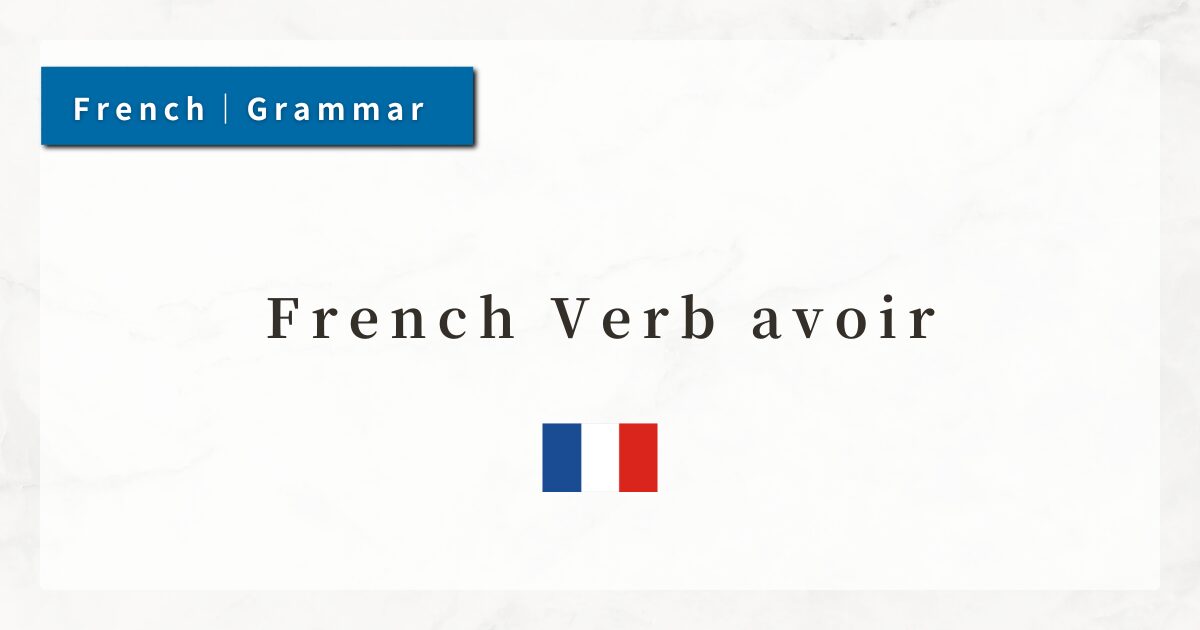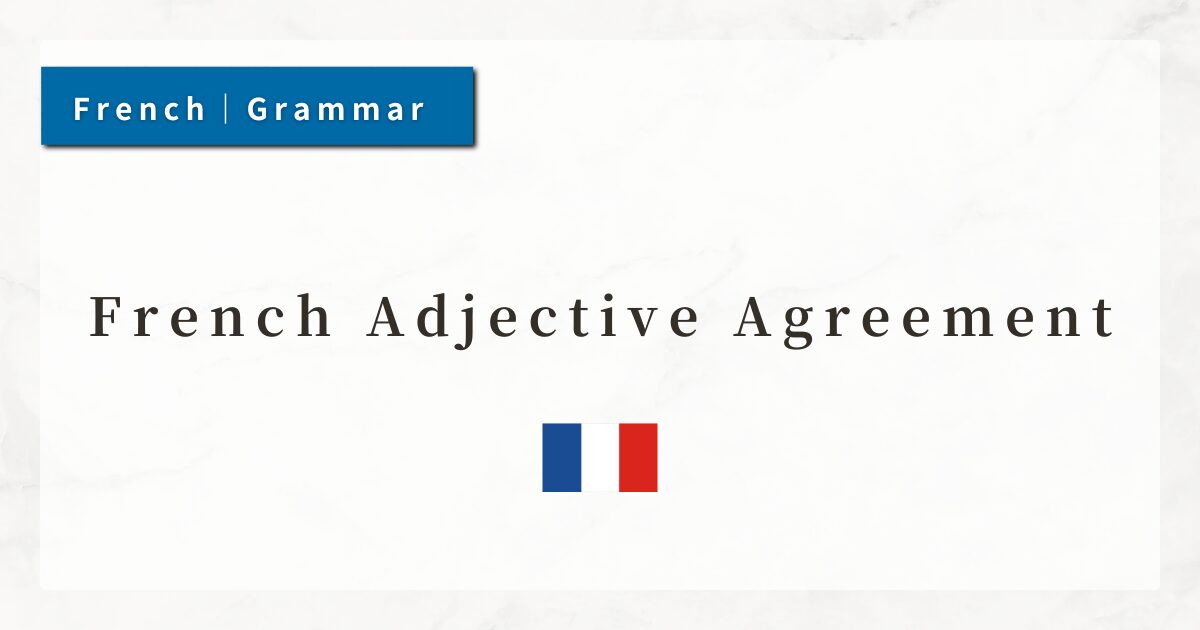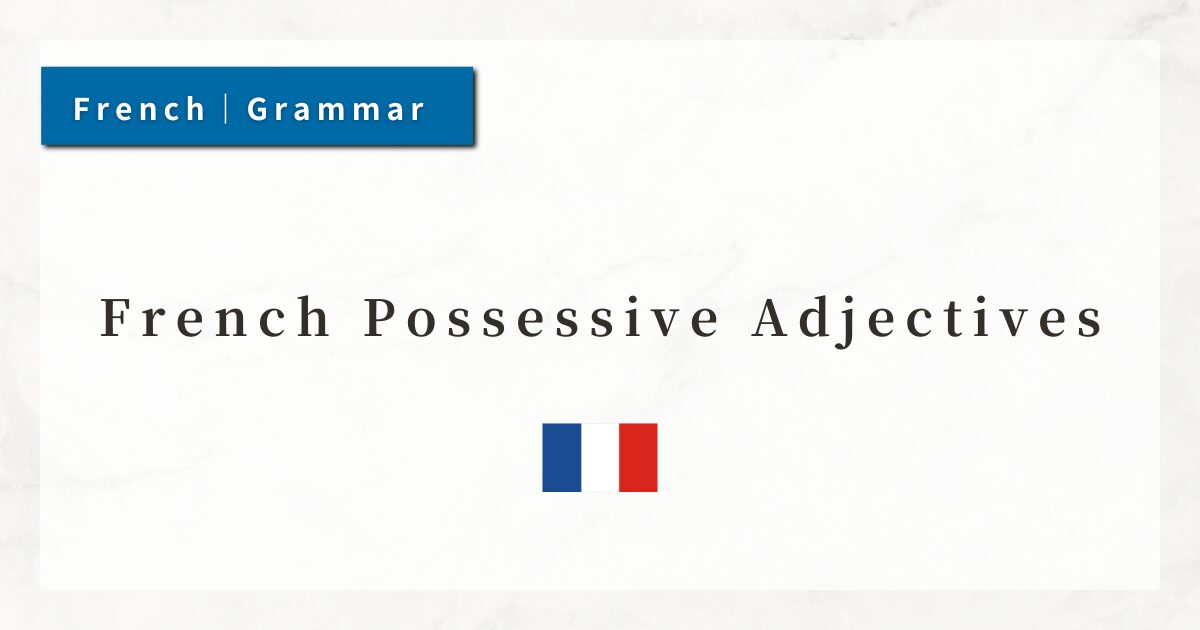#8 French Verb avoir | Usage and Conjugation Explained

The French verb avoir (“to have”) is one of the most fundamental verbs in the language, equivalent to English have.
It expresses not only possession but also appears in a wide range of expressions.
In this lesson, I will explain the present tense conjugation of avoir and its most common uses.
1. Basics of avoir
Avoir means “to have” and is among the most essential verbs in French. It is used not only to indicate possession but also to express age, physical condition, and various states.
Because of its very high frequency of use, it is one of the first verbs that learners must master.
Avoir is an irregular verb, so you need to memorize its special conjugations for each subject.
Present Tense Conjugation of avoir
| Subject | Conjugation | Pronunciation (approx.) |
|---|---|---|
| je | ai | [é] |
| tu | as | [a] |
| il / elle / on | a | [a] |
| nous | avons | [avɔ̃] |
| vous | avez | [ave] |
| ils / elles | ont | [ɔ̃] |
2. Expressing Possession with avoir
The most basic use of avoir is to express possession of objects or people.
It corresponds to English have, but in French it is used more frequently and broadly.
The key is to place the direct object—the thing possessed—after avoir.
Unlike English, French does not require changes in word order or additional particles depending on singular/plural. The structure is simply “verb + object.”
- J’ai une voiture.
(I have a car.) - Ils ont des amis.
(They have friends.)
In English, you might distinguish between have and own (“I have a cat” vs. “I own a cat”), but in French, avoir covers both nuances.
It can be used for physical possessions (books, cars, houses) as well as for human relationships (family, friends, children).
3. Expressing Age with avoir
In French, age is expressed with avoir, not with être.
- avoir + number + ans
The idea is that one “has” a certain number of years, which differs from English (I am 20 years old).
- J’ai 20 ans
. (I am 20 years old.) - Mon frère a 18 ans.
(My brother is 18 years old.)
Ans (“years”) must always be in the plural form after the number.
4. Expressing States and Feelings with avoir
Avoir is also used in expressions for physical conditions, bodily states, and sensations.
Unlike English (I am hungry), French uses avoir—similar to expressing age—by “having” hunger, thirst, or other states.
- avoir faim (to be hungry)
- avoir soif (to be thirsty)
- avoir chaud (to be hot)
- avoir froid (to be cold)
- avoir sommeil (to be sleepy)
- avoir peur (to be afraid)
5. Summary
- Avoir is the basic verb meaning “to have,” primarily used for expressing possession.
- Age is expressed with “avoir + number + ans,” not with être.
- Expressions of physical states and sensations (hunger, thirst, cold, sleepiness, fear, etc.) also use avoir.
- Its conjugation is irregular, but because of its very high frequency, it is best learned together with the subject pronouns.




